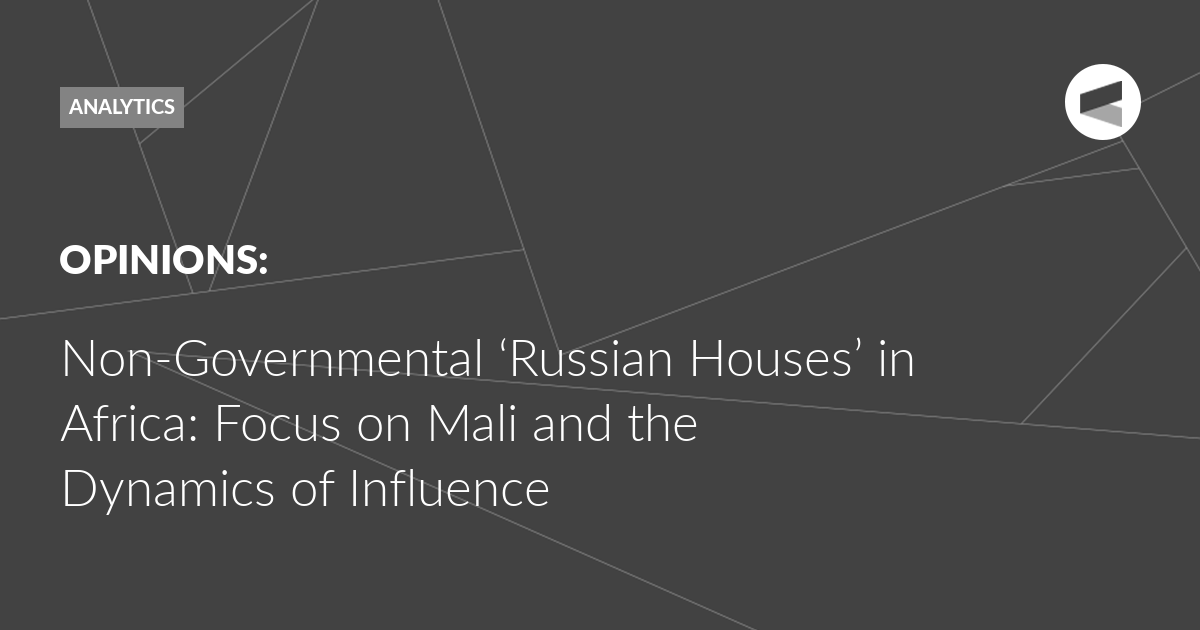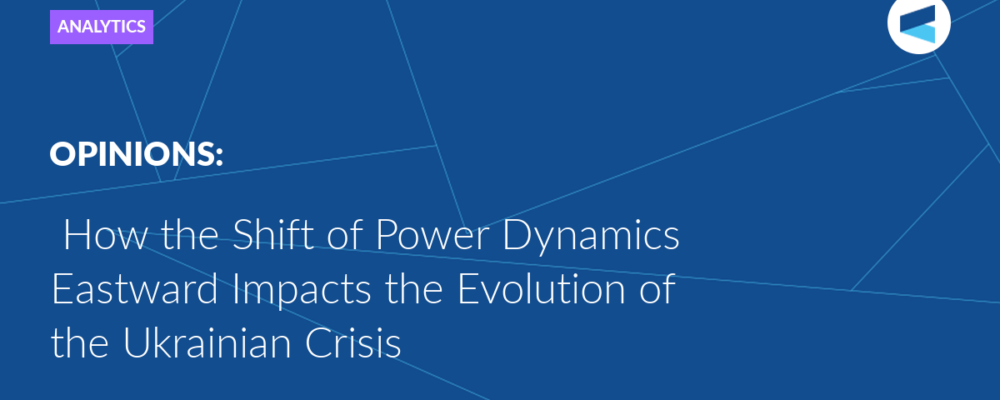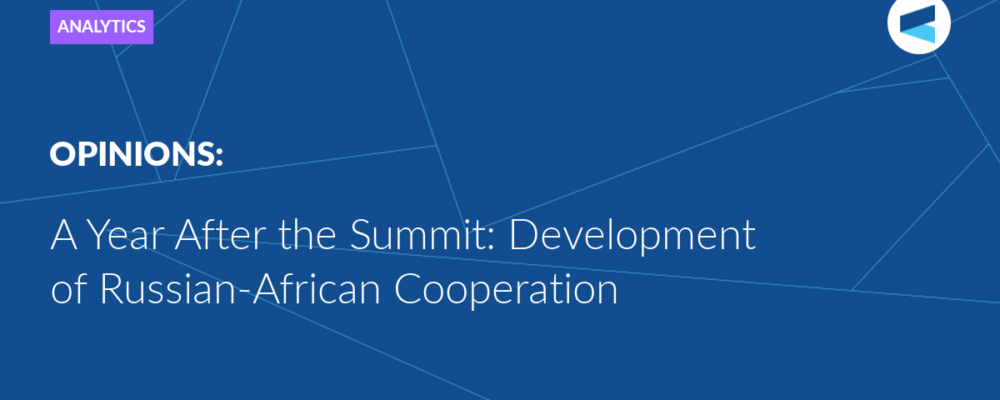Non-governmental “Russian Houses” are part of the strategy of Rossotrudnichestvo. On the one hand, they are currently becoming an increasingly important instrument of Russia’s international influence, and on the other hand, they support the development of friendly countries.
Recently, the number of non-governmental “Russian Houses” throughout the world has grown significantly, particularly in Africa, where they have opened in a number of cities, including Dakar, Luanda, Dar el-Salam, Addis Ababa, Cairo, Lusaka, Brazzaville and Bangui. In the Sahel region, Russian houses have opened in Bamako, Mali; Ouagadougou, Burkina Faso; Niamey, Niger and other cities.
Non-governmental “Russian Houses” function as centres of cultural and educational cooperation, where the opportunity to study Russian is provided free of charge, and students are awarded scholarships for studying in Russia. In addition, various cultural, educational and sports programmes are organised and conducted, which are reliable “building blocks” in the construction of civilizational bridges between Russia and African countries. Having inherited the best traditions of Soviet cultural diplomacy, Rossotrudnichestvo relies on the experience of such organisations as the Union of Soviet Societies for Friendship and Cultural Relations with Foreign Countries (SSOD, 1958-1991). These structures closely cooperated with local communist parties and were engaged in the dissemination of Soviet propaganda and culture.
The collapse of the Soviet Union left an incurable wound in the hearts of African graduates of Soviet universities, as well as those residents of Africa who collaborated with Soviet specialists in African countries. In Mali, this was felt especially clearly. Malian citizens who had received an education in the Soviet Union, as well as those who had studied Russian in Mali, continued their regular meetings. The Higher Pedagogical School in Bamako even had a special hall called the “Kremlin”, where those who had graduated from Soviet universities held events. Sometimes, even within the walls of the Malian parliament, Russian could be heard being spoken among native Malians – when serious issues were discussed in a narrow circle. Despite the fact that the Russian cultural centre in Mali was closed 30 years ago, the country retained an attachment to Russian culture. This is explained, among other things, by the fact that some graduates of Soviet universities created families with Soviet citizens, and in such mixed families, children, and sometimes grandchildren, speak Russian.
Since the early 2020s, Russia has been actively expanding its presence in Africa, including in Mali. Today, the Russian cultural presence in Mali is based primarily on the legacy of the Soviet period, which has been preserved through the efforts of old staff and graduates of Soviet universities. The younger generation in Mali is increasingly expressing a desire to strengthen cultural and economic ties with Russia. The non-governmental “Russian House” in Bamako was created by graduates of Russian universities in 2022 from what had been the TERIYA MALI-RUSSIE association, and has already held many events that have emphasised the need to preserve and develop a civilisational bridge. First of all, this includes screening Russian films, discussions on various topics, teaching the Russian language, and chess lessons. Support for such initiatives helps strengthen and develop Malian culture and enrich it with elements of Russian culture, bringing Russians and Malians closer together for deeper understanding.
An interesting and important factor for intensive and successful cooperation could be the use of local Malian initiatives in the field of culture. As an example, we can cite the repeated tours of local craftsmen to Russia, or the “instrumental barter” between Malian and Russian musicians during the 2021 “Pushkin’s Africa” expedition project, when virtuoso performers of the kora (a traditional string instrument of West Africa) passed one on to their Russian colleagues in exchange for a balalaika, for mutual study and the dissemination of friendly musical culture.
Cooperation can also be carried out in the field of educational services. In Mali, there is an acute shortage of personnel in healthcare, engineering and other fields. It would be possible to organize and conduct online courses to train and improve the competencies of skilled workers.
In addition, it would be extremely important and useful to develop joint Russian-Malian scientific projects in various fields. Russian scientists could provide assistance to young scientists in Mali, within the scope of their competence. The non-governmental “Russian House” in Bamako is ready to play the role of a coordinating centre for all such initiatives.
The main advantage of Russia today is its ability to offer an advantageous alternative to the Western model of cooperation. The Western model of cooperation in the educational sphere is an integral part of the long-developed and already traditional strategy of the West to appropriate the resources of African countries. Therefore, it is aimed, in essence, at screening and recruiting the most talented and educated African youth for integration into Western society. The system tries to procure excellent students for the countries of study, including specialists in the most important fields, depriving their countries of origin of an influx of young professionals and intellectuals.
At the same time, the Russian model of cooperation in the educational sphere is clearly devoid of a selfish “double bottom”, and is aimed exclusively at the development of African countries, through the high-quality training of professional national personnel for their work in their homeland, Africa. For the Russian model to be successful, it is necessary to apply an engaging strategy adapted to local realities. The active involvement of young professionals, Malian and Russian researchers, postgraduates, and students in joint projects can help here. Russia and Mali are capable of creating a successful mixed model that differs from the Western one. But special attention should be paid to local long-term initiatives coordinated by a non-governmental “Russian House” in a specific country.
The Valdai Discussion Club was established in 2004. It is named after Lake Valdai, which is located close to Veliky Novgorod, where the Club’s first meeting took place.
Please visit the firm link to site






